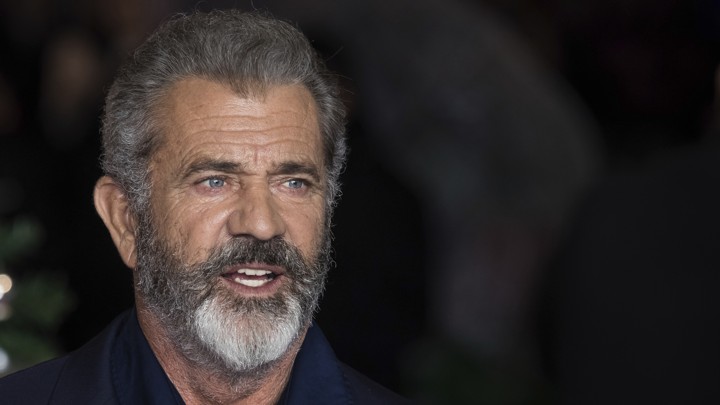The actor-director known for making anti-Semitic remarks in the past is set to star in a movie with the provocative title Rothchild.
MAY 14, 2019

Mel Gibson at a 2017 premiere of his film Daddy's Home 2
VIANNEY LE CAER / INVISION / AP
The pitch for the newly announced satirical fiction film Rothchild, a comedy set in the world of the ultra-wealthy about a forgotten son trying to inherit the money of his influential family, already sounds like an elaborate piece of trolling. The real-life Rothschild family, a Jewish and European banking dynasty, has for centuries been the subject of anti-Semitic myths and conspiracy theories, fables revolving around their alleged control of world finances. The film that’s up for sale at this year’s Cannes Marché du Film, a movie marketplace where a majority of the industry’s business is done, has dropped the s from the family’s name, but the title is still loaded. Even more bizarrely: Mel Gibson is attached to star.
Gibson’s involvement is hard to interpret as anything but a whole other level of provocation, a ludicrous addition to a project that already sounds potentially offensive. The actor and director’s reputation has recovered in Hollywood despite numerous scandals, including a drunk-driving arrest, a racist phone call to an ex-girlfriend in which he drunkenly admitted hitting her, and a plea of “no contest” to a charge of battery. Despite all that, Gibson was nominated in 2017 for an Oscar for directing Hacksaw Ridge and was recently hired by Warner Bros. to direct a remake of The Wild Bunch. But Gibson’s history of anti-Semitic remarks makes him a particularly baffling choice for a project titled Rothchild. (A representative for Gibson stated that the film has no connection to the real-life Rothschild family.)
When Gibson was pulled over by police for drunk driving in 2006, the officers recorded him saying (among other things) that “Jews are responsible for all the wars in the world.” Years later, The Atlantic’s Jeffrey Goldberg asked him about that particular blowup, which Gibson said was a result of drunkenness. “I was loaded, and some stupid xxxx can come out of your mouth when you’re loaded,” the actor said in 2011, claiming that his invective was prompted by Israel’s conflict with Lebanon at the time. Gibson’s 2004 film The Passion of the Christ had been criticized for pushing the anti-Semitic notion that Jews were to blame for the death of Jesus. The director’s attempt at a follow-up movie about Judah Maccabee never came to fruition, but its screenwriter alleged that Gibson was publicly hateful of Jews and used several anti-Semitic epithets in their time working together (Gibson denied the allegations, but admitted to having had “a little bit of a temper”).
Despite Gibson’s widely reported past behavior, HanWay Films, a British distributor that mostly works on indie projects, announced on Monday that it had acquired the international rights to Rothchild. Shia LaBeouf—who is Jewish—has been cast as the main character, Becket Rothchild, who conspires to kill the nine entitled scions who are in the way of him inheriting the family fortune. Gibson will play Whitelaw Rothchild, Becket’s sinister grandfather. Jon S. Baird, who last made the sleepy 2018 biopic Stan & Ollie, will direct, and the script is by John Patton Ford.
“The divide between the superrich and the rest of the world is an ever-growing one, and it’s both fun and fascinating to delve into its inner bowels along with our hero trying to scramble to the top and claim his piece,” HanWay’s managing director, Gabrielle Stewart, said to TheHollywood Reporter about the movie. The thrust of the story—a villain kills off his rich relatives to try to secure their wealth—is reminiscent of classic black comedies such as Kind Hearts and Coronets, but that makes the choice of title for Rothchildeven more befuddling. If the film is really intended as a broad satire of the 1 percent, then why pick such a specific, charged name?
The Cannes marketplace is where production companies try to raise money for their projects by bundling stars, directors, and scripts together and shopping them around to various distributors. Gibson, like many other performers who were huge in the ’80s and ’90s, remains a massive draw overseas, and has helped secure funding for controversial projects such as Dragged Across Concrete by simply agreeing to appear in them. Many movies announced at the marketplace never actually make it to production, and Rothchild may not weather the backlash that is already building against this initial announcement. But the project’s existence alone is a stark example of how much Gibson’s reputation has recovered in the industry—and how tone-deaf companies are continuing to be about his past actions.
No comments:
Post a Comment